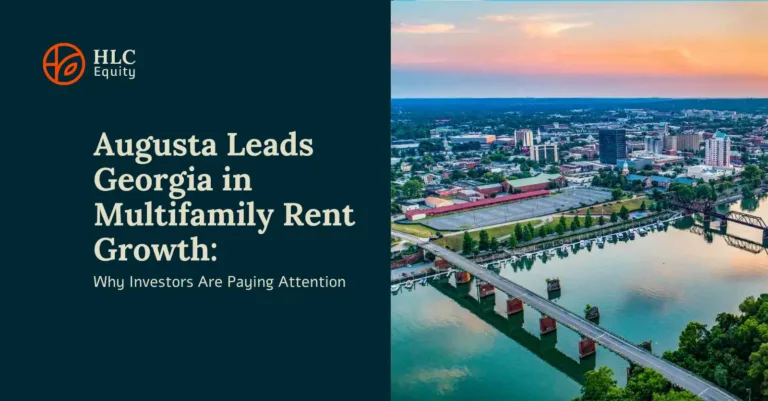Economic turmoil is nothing new. The Great Recession is not so far in the rearview mirror. COVID sent the stock market crashing down and then roaring to new highs. Sky-high inflation and rising interest rates are just the latest conditions to spook investors.
Precisely where the markets go from here is anyone’s guess. However, there is good reason to believe that a recession is on the horizon. If not today, then most likely within the next six to twelve months. We’re already starting to see a market correction.
There’s no better time than now to start preparing your portfolio for an impending downturn.
Defining a “Recession”
A recession is best thought of as a widespread decline in overall business activity. Recession can be measured several ways. The most common measure is when there is a reduction in GFP quarter over quarter.
Recessions can impact sectors in different ways. For example, real estate is an illiquid asset class and therefore, it generally takes longer to feel the impacts of a recession in real estate than in other sectors. It may take months for the impact of declining yields to be realized, and those impacts may linger for longer than other asset classes that can more readily bounce back.
Tips for Creating a “Recession-Resilient” Portfolio
Savvy real estate investors will take certain precautions well ahead of a recession. For many, protecting their downside is an inherent focus regardless of where we are in any market cycle. It is just core to their investment philosophy. Those who prioritize capital preservation from the outset are generally well positioned when faced with economic upheaval.
That said, there are some things investors can do when faced with a looming recession—even if they have not taken those steps yet. Consider the following.
Lower utility costs.
Utility costs, especially the price of electricity, are soaring. There are two ways that owners can get ahead of rising utility costs.
The first is to enter into long-term agreements with your local energy providers. At HLC, we have been doing this for years. We always negotiate our rates and then lock in the lowest price possible. This has been especially valuable lately, as the cost per kilowatt hour has doubled since last year. We’ve locked in a substantially lower rate that provides us with some insulation as energy costs have risen.
The second strategy we look at is implementing a RUBS (ratio utility billing system) program. This is a great way of passing costs through to tenants.
See, many properties were originally built with only one set of utility meters. The single set of meters measures electricity, gas, and water usage for the entire building. At a single-metered property, the owner typically pays for all utility costs and then charges a rent premium to cover those costs.
With a RUBS program, the owner allocates utility costs to tenants without submetering each unit. Instead, each tenant pays a certain ratio of each month’s utility billing using a pre-determined formula. That formula is usually based on several factors including the size of the unit, number of bedrooms/bathrooms, whether the unit has a dishwasher or in-unit laundry, number of tenants living in the unit, etc.
This way, owners limit their exposure to fluctuating utility prices. We implement RUBS programs at our apartment buildings whenever possible.
Recondition existing vendor contracts.
Many owners acquire properties with third-party vendor contracts already in place. This could include, for example, the contracts for property management, trash service, snow removal, pool service and more.
When we acquire a property, prior to purchase during the due-diligence phase we look over each vendor contract with a fine-toothed comb. We then analyze whether these vendors are a good fit for our business model and if so, whether the terms of the agreement are aligned with market standards.
Whether you have recently acquired a property or have owned a building for years, now is a great time to evaluate all vendor contracts. Just as you want to lock in rates on long-term contracts with utility companies, consider doing the same here. This is something we routinely do and it helps to fix costs. Heading into a recession, the more fixed costs you have, the more predictability you’ll also have in turn.
Expand your vendor and supplier networks.
In addition to the above, it is important to build out your vendor and supplier networks. This is always true, regardless of where we are in the market cycle, but it is especially true when faced with rising inflation and a potential recession. As costs increase, you want to be sure you aren’t getting gauged. One way to mitigate this is by having a robust network of vendors and suppliers. This allows you to quickly obtain multiple quotes to ensure you’re getting fair pricing. When need be, you can substitute vendors if you have a network to choose from.
Having a network of suppliers has become more important in the wake of widespread supply chain issues. You cannot wait for weeks to replace a refrigerator, but also don’t want to pay triple the price because you’re desperate. When you have a network of suppliers, you can see who has the inventory when you need it—something that can work to keep costs down.
Leverage in-house staff to the extent possible.
We’ve talked a lot about vendors and service providers, but when faced with a recession, another strategy is to bring certain services in-house. For example, we try to do as much unit turnover (e.g., cleaning, painting) in-house as possible. This minimizes the need for third party vendors whose pricing may be on the rise.
Another benefit to using in-house staff is that we can respond faster. For example, during a downturn, turning over units quickly becomes important. When we can use our in-house team, we avoid relying on vendors who may be over-scheduled and may not be able to get to our property for several days. Otherwise, we’re losing money for every day that unit sits vacant.
Routinely appeal property taxes.
They say that the only two things in life that are guaranteed are taxes and death. Indeed, real estate taxes are often one of an owner’s largest fixed costs. Most people assume it’s a cost they have no control over.
Yet we routinely appeal our property tax bills. In places like Texas, the assessed tax rate has continued to rise as property values have risen. However, during a downturn, property values generally decline. Unless we appeal our property taxes, our bills will generally stay the same (even if they don’t continue to rise). When we see a market cooling, we routinely challenge tax assessments to account for lower values. We then capture that delta. Not every appeal is successful, but filing an appeal is a low-cost way of trying to reduce your tax burden.
Utilize long-term, fixed rate debt.
Debt is generally one of the largest costs associated with owning a commercial property. Even a marginal increase in interest rates can translate into tens of thousands of dollars a month in additional interest.
This is why the vast majority of our portfolio utilizes long-term, fixed-rate debt whenever possible. Some projects do require shorter-term variable debt in order to stabilize. Whenever this is done, it is recommended to purchase an interest rate cap until you are able to refinance into a fixed-rate long-term loan. This not only saves us money as interest rates rise, but it also provides more predictability compared to floating-rate debt. We monitor the debt markets closely to take advantage of lower rates whenever possible.
Prioritize tenant screening.
In deeper recessions, an owner’s tenant qualification process matters more. Finding great, credit-worthy tenants with sufficient income helps to prevent widespread delinquency. Develop a leasing criteria that will filter out applicants who are at a higher risk of not making future rent payments. Consider partnering with a 3rd party service who will work with you to create a screening process that helps ensure your applicants meet your minimum qualifications. Always remember to follow Fair Housing Guidelines in your qualification process.
Carefully consider capital expenditures.
Many people acquire assets that they intend to renovate and improve. Some plan to make these improvements immediately. Others will make improvements more gradually. Some will make “heavy” value-add improvements; others will use a lighter touch.
In any event, now is a great time to consider your capital expenditures. First, be sure you have a carefully crafted budget in place for any CapEx investments. Then, categorize improvements as necessary vs. optional. Focus on the necessary improvements now. Optional improvements might be scaled back until the economic uncertainty has passed. Holding off on some investments may be warranted, even if contrary to the original business plan, if it helps preserve cash reserves.
Any building improvements should also be made in the context of what’s happening in the market both locally and more broadly. For example, if a recession causes widespread job losses, people will be more price conscious. They’d rather rent a clean, safe, and affordable apartment rather than one with all new bells and whistles. Owners need to ensure they’re able to get sufficient return to warrant their optional value-add investments.
Look to preserve liquidity.
Given the illiquid nature of commercial real estate, owners and investors generally want to preserve as much liquidity is possible. This is always true, but it is especially true when faced with a recession. This is because the debt and equity markets tend to dry up during recessions, making it harder to purchase, finance, and sell commercial property.
One way to preserve liquidity is by selling underperforming assets. To the extent you have underperforming properties in your portfolio, consider selling them now to free up cash that can be redeployed into opportunistic deals when a recession takes hold.
Another way to preserve liquidity is by minimizing the debt you have on your existing assets. Properties with lower leverage tend to be at less risk of default in the wake of a severe recession.
Here at HLC Equity, a lot of the steps we’ve outlined above are things we do here as general practice—not just for recession or inflation protection. Nevertheless, they are important steps to take as we face a recession that is likely just over the horizon.
Of course, every recession has its own peculiarities that make it difficult to plan for. The COVID-induced downturn in 2020 was much different than the one we’re facing today. Back then, the market quickly ground to a halt. Banks stopped lending. The Federal Reserve cut interest rates to practically zero (to 0.02% in April of 2020!). Today, inflation is skyrocketing and interest rates are higher than they have been in more than 20 years. These conditions will make the impending recession arguably more challenging and limiting in terms of what owners can do—which is why it is more important than ever to try to get ahead of it now.
Are you interested in learning more about our investment philosophy? Contact us today to learn the many ways we work hard to protect investors’ downside.


